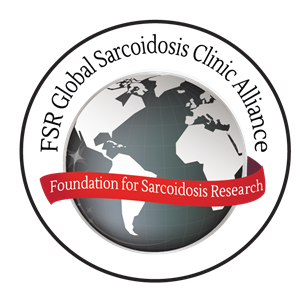
Northwestern Medicine Canning Thoracic Institute Sarcoidosis Program
We provide multidisciplinary care for patients with sarcoidosis.
Northwestern Medicine Canning Thoracic Institute Sarcoidosis Program
 The Northwestern Medicine Canning Thoracic Institute Sarcoidosis Program has been designated as a Center of Excellence by the World Association of Sarcoidosis and other Granuloma Diseases. This achievement refers to a team of specialized medical professionals that provide leadership, best practices, research, support and/or training for patients with sarcoidosis and professionals. We are also members of the Foundation for Sarcoidosis Research Global Sarcoidosis Clinical Alliance (Foundation for Sarcoidosis Research).
The Northwestern Medicine Canning Thoracic Institute Sarcoidosis Program has been designated as a Center of Excellence by the World Association of Sarcoidosis and other Granuloma Diseases. This achievement refers to a team of specialized medical professionals that provide leadership, best practices, research, support and/or training for patients with sarcoidosis and professionals. We are also members of the Foundation for Sarcoidosis Research Global Sarcoidosis Clinical Alliance (Foundation for Sarcoidosis Research).
We work with clinicians from many specialties, including:
- Pulmonology
- Dermatology
- Ophthalmology
- Neurology
- Cardiology
Treatments for sarcoidosis may include:
- Corticosteroids
- Steroid-sparing immuno-suppressants
- TNF-alpha inhibitors
Meet the Team
Northwestern Medicine provides complete diagnostic and treatment services and facilities for patients with sarcoidosis.
Meet the Downtown Chicago Pulmonary Sarcoidosis Team
Meet the Downtown Chicago Pulmonary Sarcoidosis Team

